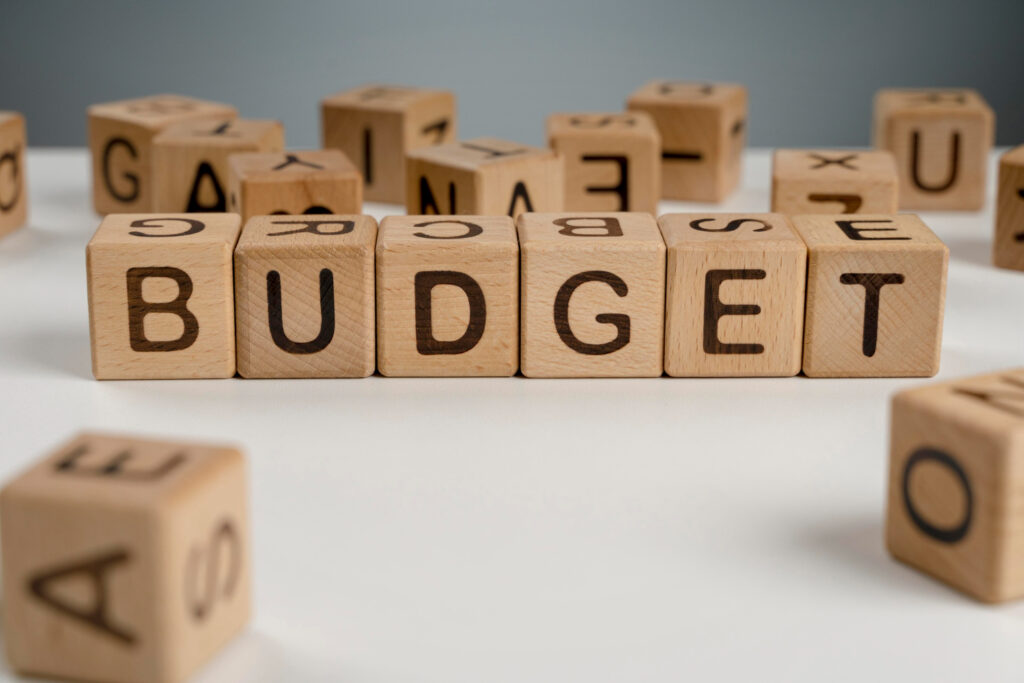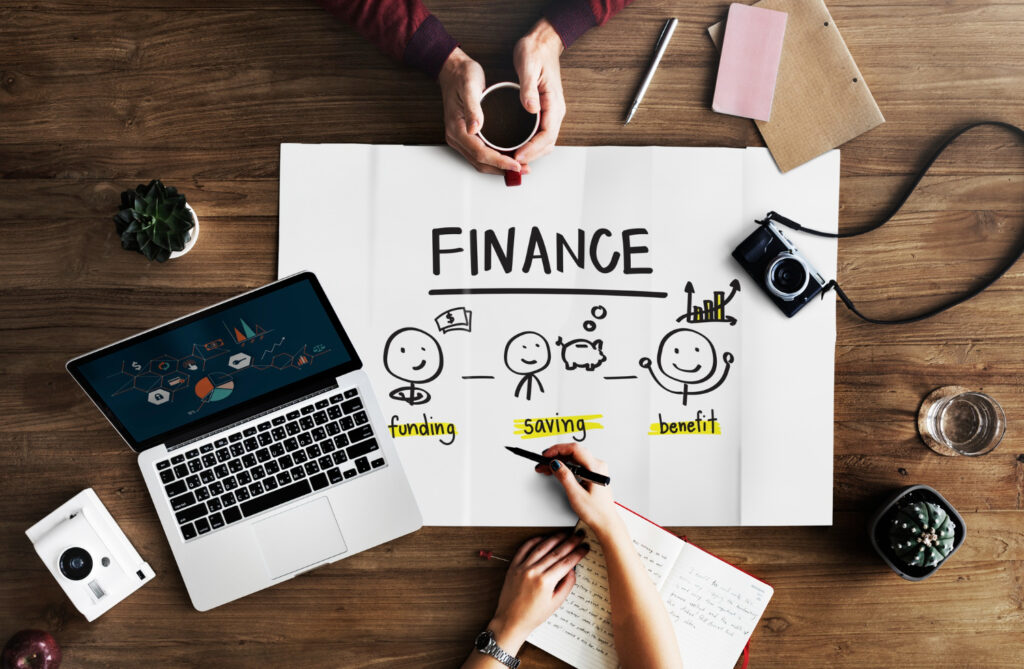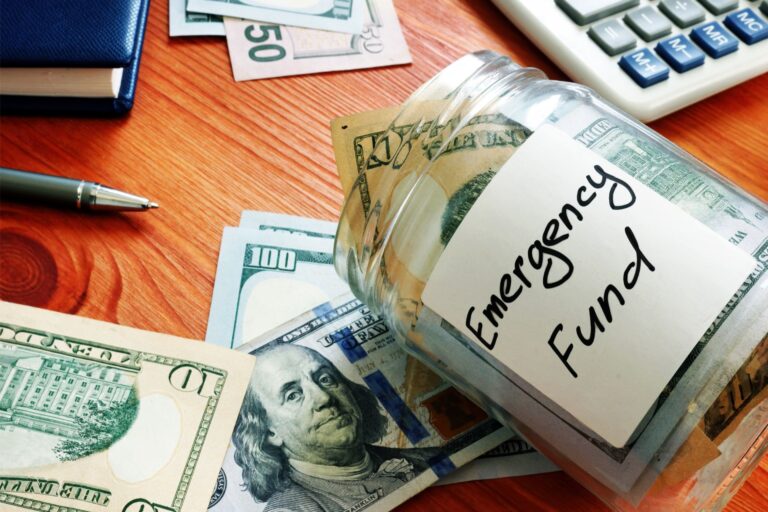12 Money Habits Of Women Who Are Never Broke

Let’s be real for a second, nobody wakes up one day and thinks, “You know what? I’d love to be broke forever.” Yet somehow, plenty of us end up there, staring at our bank accounts like they’re playing a cruel joke on us.
But here’s the thing: the women who always seem to have their financial act together? They’re not necessarily earning six figures or inheriting trust funds. They’ve just cracked the code on some seriously smart money habits.
I’ve spent years studying personal finance (yeah, I actually have a master’s degree in this stuff), and I’ve noticed patterns among women who never seem to stress about money. They’re not doing anything magical or impossible. They’re just consistently practising habits that the rest of us often overlook or think we’ll “get to later.”
So if you’re tired of checking your account balance with one eye closed, or if you’re ready to stop letting money control your life, stick with me. We’re about to break down 12 rock-solid habits that financially secure women swear by.
What Are Some Good Money Habits Of Women Who Are Never Broke?
Before we jump into the specifics, let me give you the TL;DR version. The women who stay financially afloat aren’t just lucky, they’re strategic. They’re the ones who automatically transfer money to savings, treat their credit card bill like it’s on fire if it’s not paid on time, and view debt like that toxic ex they refuse to text at 2 AM.
These habits aren’t about deprivation or living like a monk. They’re about being intentional with your money so it works for you instead of against you. And trust me, once you get these habits down, your financial stress will drop faster than your interest in your high school reunion.
12 Money Habits Of Women Who Are Never Broke
Alright, let’s get into the good stuff. These are the non-negotiable habits that separate the financially secure from the perpetually broke.
1. They Budget Their Income

I know, I know, budgeting sounds about as fun as watching paint dry. But hear me out. A budget isn’t a financial straitjacket; it’s actually your permission slip to spend guilt-free because you know where every dollar is going.
Think of your budget as a GPS for your money. Without it, you’re just driving around hoping you’ll somehow end up at your destination. With it, you know exactly which route to take, where you can make pit stops, and when you need to refuel.
Here’s what financially savvy women do differently: they don’t just track their spending after the fact. They plan it before the month even starts. They allocate money for rent, groceries, savings, and yes, even fun stuff.
The magic happens when you realise that budgeting actually gives you more freedom, not less, because you’re not constantly worried about overdrafting or wondering where all your money went.
Start simple. List your income at the top of a page. Then list every single expense you can think of, and I mean everything, from your Netflix subscription to that daily coffee habit.
Subtract expenses from income. Whatever’s left? That’s your decision-making money. You can save it, invest it, or blow it on something that makes you happy. The point is, you’re in control.
2. They Spend Cautiously
Ever bought something on impulse and then felt that immediate pang of regret? Yeah, we’ve all been there. But women who maintain financial stability have mastered something the rest of us struggle with: the pause button.
They don’t whip out their credit card the second they see something shiny. Instead, they ask themselves questions that actually matter: “Do I need this, or do I just want it right now?” “Will I still care about this purchase next week?” “Does this align with my financial goals?”
I’m not saying you should never treat yourself; that’s a recipe for burnout. But there’s a massive difference between intentional spending and mindless consumption. The financially secure women I know use a 24-hour rule for non-essential purchases over a certain amount (usually around $50-100).
They let themselves sit with the desire for a day. If they still want it after 24 hours, they buy it. But you’d be surprised how often that initial urge fades.
Also, can we talk about financing everything? If you can’t afford something outright, you probably can’t afford the monthly payments either, especially when you factor in interest. That designer bag might seem more affordable at $50 a month, but you’re essentially paying a premium to be broke slowly instead of all at once.
3. They Set Relevant Financial Goals

Here’s where a lot of people mess up: they set financial goals that sound impressive but have zero connection to their actual lives. “I want to be a millionaire by 40!” Okay, cool, but why? And more importantly, what’s your plan for getting there?
Women who stay financially secure set goals that actually make sense for their situation. If you’re drowning in credit card debt, your goal shouldn’t be buying a vacation home; it should be getting out of that debt so you can breathe again.
Financial goals need to be specific, measurable, and meaningful. “Save more money” is vague and useless. “Save $5,000 for an emergency fund by December” is something you can actually work toward and track. See the difference?
The smartest thing you can do is create a hierarchy of goals. At the top? Your emergency fund and high-interest debt payoff. In the middle? Retirement savings and medium-term goals, like a down payment.
At the bottom? Nice-to-haves like that dream vacation or new furniture. This way, you’re not trying to do everything at once and ending up doing nothing well.
4. They Save
Let me hit you with some truth: you cannot build wealth without saving money. Period. I don’t care if you’re earning $40,000 or $400,000; if you spend everything you make, you’ll always be one paycheck away from disaster.
The women who never go broke treat savings like a non-negotiable bill. They don’t save whatever’s “left over” at the end of the month (spoiler alert: there’s never anything left over). They pay themselves first by automatically transferring a percentage of their income to savings the moment their paycheck hits.
How much should you save? Financial experts like Dave Ramsey recommend 10-15% of your gross income, but honestly, something is better than nothing. If you can only swing 5% right now, do that. The habit matters more than the amount when you’re starting.
And please, for the love of compound interest, automate this. Set up automatic transfers so you don’t even have to think about it. You can’t spend money you never see in your checking account. It’s like magic, except it’s just smart financial planning 🙂
Open a high-yield savings account (check out Ally Bank or Marcus by Goldman Sachs) where your money can actually earn some interest instead of sitting in a traditional bank account earning basically nothing.
5. They Invest
Saving is step one. Investing is step two. And if you want to build actual wealth, not just avoid being broke, investing is non-negotiable.
Here’s what blows my mind: so many women think investing is only for rich people or finance bros in suits. Wrong. Investing is for anyone who wants their money to work harder than they do.
Let’s talk real numbers. If you save $500 a month in a regular savings account earning 0.5% interest, after 20 years, you’d have about $123,000. Not bad, right? But if you invest that same $500 monthly in an index fund averaging 7% returns (which is actually conservative for the S&P 500’s historical average), you’d have about $260,000. Same effort, double the money. Math doesn’t lie.
Women who stay financially secure understand that investing isn’t gambling, it’s strategic wealth-building. They max out their employer’s 401(k) match (that’s literally free money, people). They open Roth IRAs. They invest in low-cost index funds through platforms like Vanguard, Fidelity, or Schwab.
And before you say, “I don’t have enough money to invest,” let me stop you right there. Many platforms let you start with as little as $100 or even offer fractional shares. Apps like Acorns will literally round up your purchases and invest the spare change. There’s no excuse anymore.
6. They Pay Their Bills On Time

This one seems obvious, but you’d be shocked at how many people treat due dates as friendly suggestions rather than actual deadlines. Late payments aren’t just annoying; they’re expensive and damaging.
When you pay bills late, three terrible things happen: you get hit with late fees (usually $25-35 per missed payment), your interest rates might increase, and your credit score takes a hit. That credit score damage? It’ll cost you for years through higher interest rates on everything from car loans to mortgages.
Women who maintain financial stability set up automatic payments for fixed bills like rent, utilities, and minimum credit card payments. They use calendar reminders for variable expenses. They treat bill due dates like they’re carved in stone because, financially speaking, they might as well be.
Pro tip: Set your bill payment dates for right after you get paid. This ensures the money is actually in your account and removes the temptation to spend it on other stuff first.
7. They Learn About Money
Pop quiz: What’s the difference between a Roth IRA and a traditional IRA? How does compound interest actually work? What’s a good debt-to-income ratio? If you’re drawing blanks, you’re not alone, but you’re also at a disadvantage.
Financial literacy isn’t taught in most schools, which is borderline criminal if you ask me. But that doesn’t mean you get a free pass to stay ignorant. Women who stay financially secure are constantly learning about money, and you should too.
The good news? You don’t need to go back to school or hire an expensive financial advisor. Start with personal finance books like “The Simple Path to Wealth” by JL Collins or “I Will Teach You to Be Rich” by Ramit Sethi. Listen to podcasts like “So Money” with Farnoosh Torabi or “Afford Anything” with Paula Pant during your commute.
Follow finance creators on YouTube, subscribe to newsletters from NerdWallet or The Penny Hoarder, and actually read the articles instead of just skimming them. The more you understand how money works, the better decisions you’ll make with it.
Financial education is an investment that pays dividends forever. Literally.
8. They Create Multiple Income Streams
Relying on a single income source in today’s economy is like bringing a knife to a gunfight; you’re probably not going to win. Women who never seem to struggle financially understand that diversification isn’t just for investment portfolios; it’s for income too.
Now, I’m not saying you need to work yourself to death with five jobs. But having 2-3 income streams creates a financial safety net that one paycheck simply cannot provide. If you lose your main job or face a pay cut, you’ve got backup.
Your side income doesn’t have to be another traditional job either. Think freelancing your existing skills on Upwork or Fiverr, starting an Etsy shop selling digital products, becoming a rideshare driver on weekends, renting out a spare room on Airbnb, or creating content that generates ad revenue.
The key is finding something sustainable that doesn’t completely drain your time and energy. Your side hustle should add to your life, not subtract from it. Start small, test different options, and scale what works.
9. They Reserve Money For Emergencies

Murphy’s Law is real: whatever can go wrong, will go wrong, usually at the worst possible time. Your car will break down the same month your cat needs emergency surgery and your water heater decides to flood your basement. It’s like the universe has a twisted sense of humour.
Women who stay financially secure don’t pray that emergencies won’t happen; they prepare for when they inevitably do. They keep 3-6 months of living expenses in a separate, easily accessible emergency fund.
This fund isn’t for “I really want this designer purse” emergencies. It’s for legitimate unexpected expenses: job loss, medical bills, urgent home repairs, or family emergencies.
Having this cushion means you won’t need to raid your retirement accounts (hello, penalties and taxes) or rack up credit card debt when life throws you a curveball.
Building this fund feels impossible when you’re starting from zero, I get it. But here’s the secret: start with a micro-goal. Aim for $1,000 first, then $2,500, then one month’s expenses. Small wins build momentum, and before you know it, you’ve got a fully-funded emergency fund that lets you sleep at night.
Keep this money in a high-yield savings account, separate from your regular checking, so you’re not tempted to dip into it for non-emergencies.
10. They Don’t Procrastinate
Procrastination is a silent financial killer. Every day you put off setting up that retirement account is costing you money thanks to lost compound interest. Every month you delay negotiating a better insurance rate is money down the drain. Every year you postpone learning about investing is another year of wealth-building opportunities missed.
Women who maintain financial stability are action-takers. They don’t wait for the “perfect time” to start budgeting or for a magical windfall to begin investing. They understand that the perfect time is now, and that small, consistent actions compound into major financial wins.
Think about it: if you spend just 30 minutes today setting up automatic transfers to your savings account, that one action will benefit you every single month going forward. That’s a pretty solid return on investment for half an hour of your time.
Time really is money. When you procrastinate on financial tasks, you’re not just delaying action; you’re actively choosing to have less money in the future. Stop waiting for motivation to strike and just do the thing. Future, you will be incredibly grateful.
11. They Know The Difference Between Needs And Wants
This is where a lot of us get tripped up because we’re really good at convincing ourselves that wants are actually needs. “I need the latest iPhone.” No, you don’t, you want it. Your current phone works fine; you’re just bored with it.
Needs are things required for basic survival and functioning in society: housing, food, utilities, transportation, basic clothing, and healthcare. Everything else? That’s a want. And wants aren’t bad! They make life enjoyable. But when you start treating wants like needs, your budget goes completely sideways.
Women who stay financially secure get brutally honest with themselves about this distinction. They prioritise needs, then use what’s left for wants, in that order, always. They don’t skip a credit card payment to afford concert tickets or let their car insurance lapse to buy new clothes.
Here’s a helpful trick: before making a non-essential purchase, calculate how many hours you’d need to work to afford it. That $150 dress? If you make $20/hour after taxes, that’s 7.5 hours of your life. Still worth it? Maybe! But at least now you’re making an informed decision.
12. They Set Their Priorities Straight
At the end of the day, staying financially secure comes down to priorities. You can’t do everything, afford everything, or be everywhere all at once. You have to choose what matters most and allocate your resources accordingly.
Women who never go broke have their financial priorities crystal clear. They know that paying off high-interest debt trumps taking an expensive vacation. They understand that building an emergency fund is more important than keeping up with the Joneses. They recognise that consistent investing beats buying trendy clothes that’ll be out of style in six months.
This doesn’t mean living a joyless existence where you never have fun. It means being intentional about your choices and understanding that every spending decision is simultaneously a decision not to spend that money on something else.
When you blow your savings fund on impulse purchases, you’re choosing temporary pleasure over long-term security. Get clear on your values and let them guide your spending. If financial freedom matters more than impressing people with your lifestyle, your decisions become much easier.
If retiring early is more important than driving a luxury car, you’ll naturally make different choices. Priority-setting is basically adulting 101, and it’s essential for financial success.
Why Do Women Need To Avoid Going Broke?
Look, some people might think, “Why focus specifically on women?” Fair question. But the reality is that women face unique financial challenges, from the wage gap to longer lifespans (meaning retirement funds need to last longer) to being more likely to take career breaks for caregiving. Financial security isn’t just nice-to-have for women; it’s essential.
Women Who Are Never Broke Achieve Their Financial Goals
Here’s the thing about financial goals: you can’t achieve them when you’re constantly broke. Want to buy a home? Need a down payment. Want to send your kids to college? That costs money. Dreaming of starting your own business? You’ll need startup capital and a safety net.
Being financially stable doesn’t just mean having money in the bank; it means having the power to make your dreams happen on your timeline, not when (or if) you finally scrape together enough cash.
I’ve seen too many women put their goals on hold indefinitely because they’re stuck in a cycle of barely making ends meet. Break that cycle, and suddenly everything becomes possible.
Women Who Are Never Broke Retire Early
Let me paint you a picture: You’re 55 years old. You’ve been working since you were 20. You’re tired, and while you don’t hate your job, you’d really rather spend your time travelling, pursuing hobbies, or just not having to ask permission to take a vacation.
If you’ve practised these money habits consistently, you can actually retire early. Not “struggle through on social security” retire, comfortably retire with financial security and options. But if you’re broke throughout your working years, you’ll be broke in retirement too. Or worse, you’ll never be able to retire at all.
Early retirement isn’t about being lazy; it’s about having the freedom to choose how you spend your time. And that freedom only comes from financial discipline practised over decades.
Women Who Are Never Broke Enjoy A Debt-Free Life
Debt is like that houseguest who overstays their welcome, except instead of eating your food, it’s eating your paycheck through interest payments. Women who stay financially secure don’t just manage debt; they aggressively eliminate it and then avoid it like the plague.
Living debt-free is transformational. Every dollar you earn is actually yours instead of being pre-allocated to some bank or credit card company. You can make career changes without being chained to a job just for the paycheck. You can handle emergencies without panic.
IMO, getting out of debt should be every woman’s top financial priority (after building a small emergency fund). The mental and emotional freedom that comes with owing nothing to anyone? Priceless.
Women Who Are Never Broke Have The Freedom To Invest
Investment opportunities are everywhere: real estate, stocks, businesses, even Bitcoin if you’re feeling adventurous. But you know who can’t take advantage of these opportunities? Broke people.
When you’re living paycheck to paycheck, you’re stuck in survival mode. You can’t invest because every penny is already spoken for. Meanwhile, people with financial stability are growing their wealth through investments that compound over time, creating an ever-widening gap.
Breaking free from being broke gives you access to the wealth-building tools that actually create financial freedom. It’s not fair, but it’s reality. The rich get richer because they have money to invest. But here’s the good news: you don’t have to be rich to start investing, you just have to not be broke.
Final Thoughts
Alright, let’s bring this home. Financial security for women isn’t about luck or a huge salary; it’s about smart habits that compound over time. Budget wisely, save consistently, invest for growth, and always know where your money goes.
You don’t need a finance degree to master this. What you need is discipline, consistency, and the courage to make small sacrifices today for peace tomorrow. The women who stay financially secure built it choice by choice, not overnight.
You can do the same starting now. Your broke days don’t have to last unless you let them. So, what’s it going to be, stay stuck or start building your financial freedom? Your future self is waiting.








